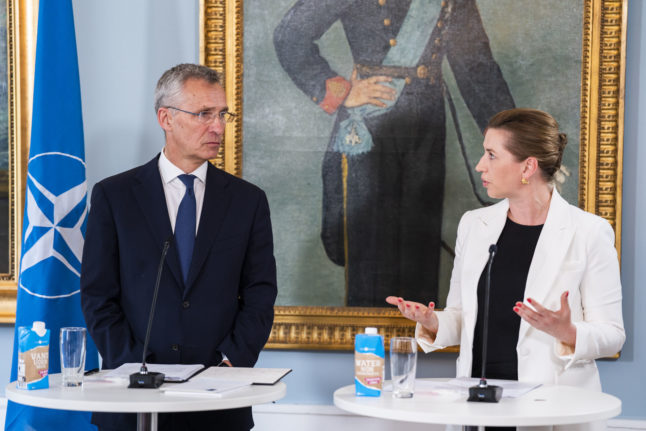Stoltenberg this week confirmed he will continue as Nato’s general secretary following a meeting with member nations’ ambassadors, who gave their backing for the decision.
That means the former Norwegian prime minister will continue as head of the military alliance until October 1st 2024, he said.
But where does this leave the current Danish PM, who was strongly rumoured to be a candidate to take over from Stoltenberg?
The decision reflects more on Stoltenberg’s capabilities than the regard in which Frederiksen is held by the international community, according to commentators in Denmark.
“This is first and foremost about what is the most stable and best thing to do when there’s a war in Ukraine,” EU correspondent with national broadcaster DR, Ole Ryborg said.
It has “always been in the Americans’ interest to convince him to continue,” he said.
But Stoltenberg staying in place does not necessarily mean rumours around Frederiksen will stop, according to the broadcaster’s political correspondent Christine Cordsen.
“But it also means [Frederiksen] need to make an extra effort to check back into Danish politics. Both in relation to government work as well as the growing power struggle within the Social Democrats,” Cordsen said to DR.
Rumours about Frederiksen’s potential departure had elicited internal discussion in the party about her own successor.
Those talks could yet gain intensity given that Stoltenberg’s extension is only by one year.
“Because that could mean that this just carries on for another year – both internally in the Social Democrats but also for political opponents who have an interest in her maybe really wanting to do something other than be prime minister of Denmark,” Cordsen said.



 Please whitelist us to continue reading.
Please whitelist us to continue reading.
Member comments